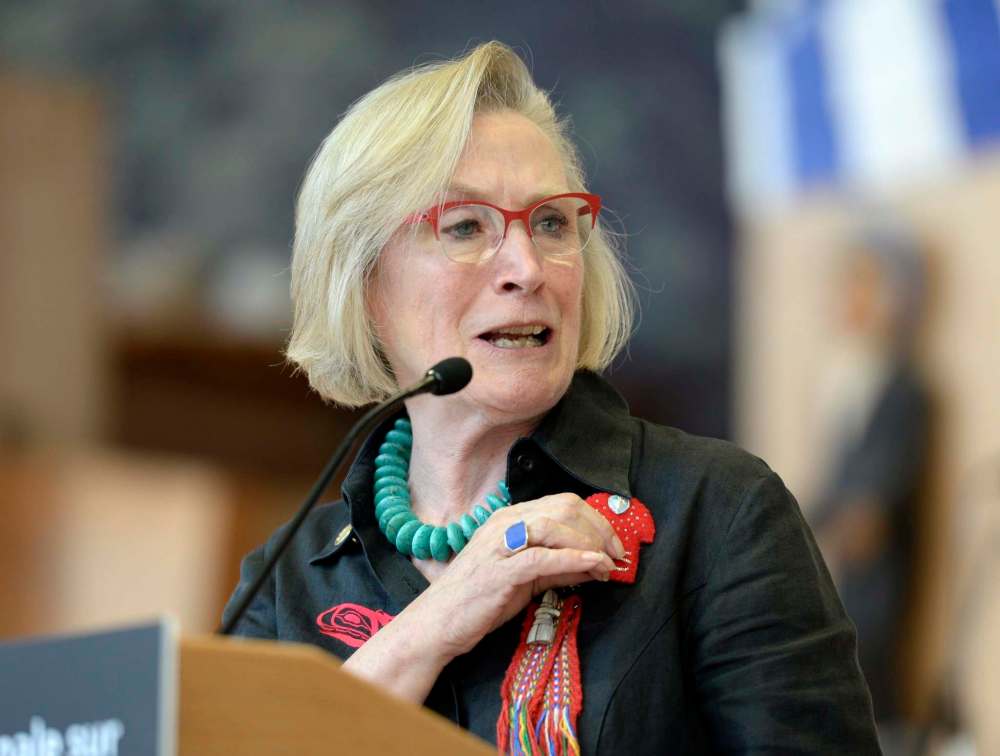Inquiry gives voice, but we need to start listening
Advertisement
Read this article for free:
or
Already have an account? Log in here »
To continue reading, please subscribe:
Monthly Digital Subscription
$0 for the first 4 weeks*
- Enjoy unlimited reading on winnipegfreepress.com
- Read the E-Edition, our digital replica newspaper
- Access News Break, our award-winning app
- Play interactive puzzles
*No charge for 4 weeks then price increases to the regular rate of $19.00 plus GST every four weeks. Offer available to new and qualified returning subscribers only. Cancel any time.
Monthly Digital Subscription
$4.75/week*
- Enjoy unlimited reading on winnipegfreepress.com
- Read the E-Edition, our digital replica newspaper
- Access News Break, our award-winning app
- Play interactive puzzles
*Billed as $19 plus GST every four weeks. Cancel any time.
To continue reading, please subscribe:
Add Free Press access to your Brandon Sun subscription for only an additional
$1 for the first 4 weeks*
*Your next subscription payment will increase by $1.00 and you will be charged $16.99 plus GST for four weeks. After four weeks, your payment will increase to $23.99 plus GST every four weeks.
Read unlimited articles for free today:
or
Already have an account? Log in here »
Hey there, time traveller!
This article was published 03/08/2016 (3389 days ago), so information in it may no longer be current.
National inquiries are as much about what they can’t do as what they can do. The launch of a national inquiry into missing and murdered indigenous women won’t bring missing women and girls back, and it will not be a panacea, a quick and easy solution to a painful and complicated problem.
Wednesday’s announcement by Indigenous Affairs Minister Carolyn Bennett outlined the mandate of the inquiry that will begin Sept. 1. Marion Buller, the first female indigenous judge in B.C., will head the commission, joined by Michèle Audette, the former head of the Native Women’s Association of Canada, Qajaq Robinson, an Ottawa lawyer, Marilyn Poitras, a University of Saskatchewan law professor and Brian Eyolfson, a First Nations lawyer from Ontario.
Remarkably, all 10 provinces and three territories have agreed to the terms of reference that will allow the commission to do its work without barriers. While Manitoba was initially reticent to participate, concerned that the inquiry would go over already existing research, the mandate makes it clear it will build on existing knowledge. This includes the pre-inquiry submissions along with the Truth and Reconciliation Commission’s Final Report and the reports of the Missing Women Commission of Inquiry — the Oppal report, which examined how authorities investigated cases involving missing women in the wake of the Robert Pickton case.

But this inquiry won’t be able to resolve the seemingly insurmountable problem of colonization, poverty and indifference toward women who are First Nations. This inquiry won’t instil trust between First Nations families and the police investigating their relative’s disappearance. It won’t end sloppy police work, it won’t stop institutional racism, it won’t make little girls safe. It won’t find criminal or civil wrongdoing.
Don’t be surprised if the inquiry also points the finger back at the indigenous communities as well. As Joan Jack, an Ojibwa activist from Manitoba has stated, the inquiry will need to look at what’s happening on reserves, where women are routinely oppressed and subjected to violence. That will be hard for some to hear, but necessary in order to move forward.
While inquiries may provide recommendations to move forward, it cannot compel authorities to comply with those recommendations. For cynics, that may be the largest concern. Hold an inquiry into missing and murdered indigenous women and girls with a price tag of $53.86 million and then little action is taken. It sits and rots on a library shelf somewhere while families question why. That would be the cruellest indignity to the memory of those women — over 1200 and counting — who have disappeared or have been found murdered between 1980 and 2013.
No doubt this inquiry will make Canadians uncomfortable much like the Truth and Reconciliation hearings did over the four years of testimony from survivors of residential schools. That’s to be expected because stories of racism and misogyny are difficult to hear. As Sen. Murray Sinclair said: “ We will learn of things that will be hard to believe, and we will be challenged to do what we cannot now imagine.”
This is the third time indigenous people have told their stories: first to the Royal Commission on Aboriginal Peoples and second with the Truth and Reconciliation Commission. This latest inquiry will give families a voice, but Canadians do need to start listening.




